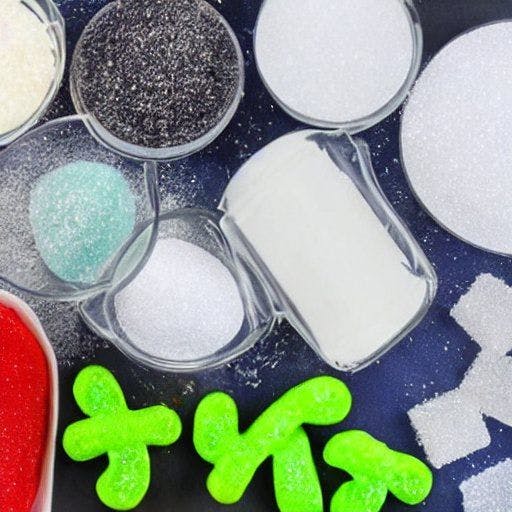
Sugar is a widely consumed substance that is commonly added to food and drinks for added sweetness. While a small amount of sugar can be part of a balanced diet, consuming too much sugar can have negative effects on health. Excessive sugar consumption has been linked to an increased risk of obesity, type 2 diabetes, heart disease, and other health problems. Understanding the effects of sugar on the human body can help individuals make informed decisions about their dietary habits and maintain a healthy lifestyle.
Sugar itself is not poisonous to the human body, but consuming too much of it can lead to negative health effects. Some of these effects include:
Increased risk of obesity and weight gain
Consuming excessive amounts of sugar can lead to an increased risk of obesity and weight gain. This is because sugar contains a large amount of calories and can contribute to an energy imbalance when consumed in excess, leading to weight gain. Additionally, consuming high amounts of sugar can also lead to insulin resistance, which is a risk factor for the development of obesity and other health problems. It is important to limit the amount of added sugars in your diet and choose healthier sources of carbohydrates, such as fruits and whole grains.

Increased risk of type 2 diabetes
Consuming excessive amounts of sugar has been linked to an increased risk of developing type 2 diabetes. Type 2 diabetes is a condition in which the body is unable to properly use and store glucose, leading to high blood sugar levels. A diet high in sugar can lead to weight gain and insulin resistance, both of which are risk factors for type 2 diabetes. It's recommended to limit your sugar intake and choose healthier sources of carbohydrates, such as fruits and whole grains.
Tooth decay and cavities
Sugar consumption can contribute to tooth decay and cavities by providing the bacteria in our mouth with a food source to produce acid that erodes the enamel of our teeth. This process can lead to the development of cavities and tooth decay over time. It is recommended to limit the consumption of sugary foods and drinks and to practice good oral hygiene habits such as brushing and flossing regularly.

Elevated blood pressure and heart disease
Consuming high amounts of sugar has been linked to increased risk for elevated blood pressure and heart disease. This is because a diet high in sugar can lead to weight gain, insulin resistance, and inflammation, all of which are risk factors for heart disease. It's recommended to limit your daily intake of added sugars to reduce the risk of developing these health issues.
Impairment of brain function
Excessive intake of sugar has been linked to impairments in brain function, such as decreased cognitive abilities, memory, and learning capacity. High sugar consumption can lead to elevated insulin levels, which affects brain function and increases the risk of developing neurological disorders such as Alzheimer's disease and Parkinson's disease. It is recommended to limit sugar intake and maintain a balanced diet to support overall brain health.
What amount is considered excessive?
According to the World Health Organization (WHO), the recommended daily intake of added sugars for adults is less than 10% of total energy intake, which is equivalent to about 50 grams (or 12 teaspoons) per day for an adult with a normal Body Mass Index (BMI). However, for many adults, the actual consumption is much higher, often exceeding 15% of total energy intake. Consuming excessive amounts of sugar is associated with various health problems such as obesity, type 2 diabetes, heart disease, and dental cavities.
It's important to keep your sugar intake within recommended limits for overall health.
